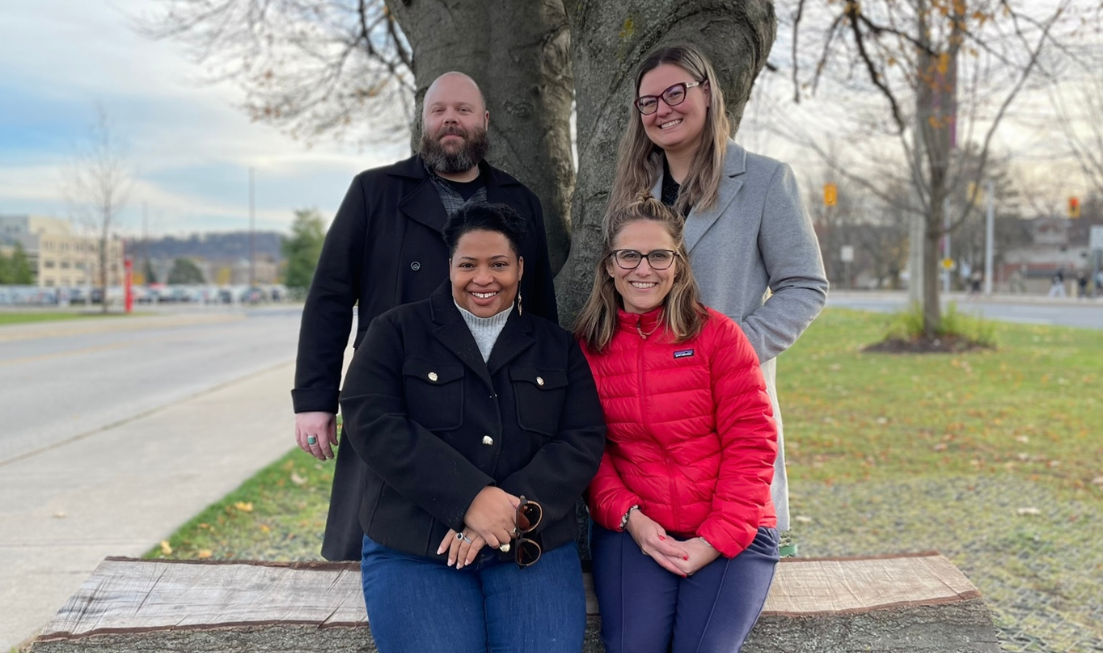McMaster gives community organizations easy access to research

Library staffers who facilitate the Community Scholars Program at McMaster University Libraries: Standing: Casey Hoeve, left, associate university librarian; and Anna Flak, teaching and learning librarian. Sitting: Crystal Mark, left, diversity, equity, inclusion, and accessibility strategist; and Lynne Serviss, associate university librarian.
McMaster University Libraries is supporting Ontario communities through a program that gives non-profit and charitable organizations free access to academic journals and research.
McMaster is the first university outside British Columbia to join the Community Scholars Program, which originated at Simon Fraser University in 2017.
Stepping outside the ivory tower
Academic resources are typically challenging for non-profit community partners to access, says Anna Flak, teaching and learning librarian with McMaster University Libraries.
“The Community Scholars Program is about stepping outside of that ivory tower, so to speak, and recognizing the difficulty of conducting research upon leaving or losing your connection to an academic institution,” Flak says.
“We recognize the value of the work and research being done by our charitable and non-profit organizations that can’t be carried out otherwise.”
With easy access to academic research, participating community partners in Hamilton and the region can develop or strengthen programs, improve advocacy and policymaking, support funding applications and meet a variety of other organizational needs.
The Hamilton Anti-Racism Resource Centre, which supports individuals who have experienced racism, discrimination and hate, is one of the organizations that signed up.
“When you’re developing action plans in response to hate incidents, having literature and research that documents and explains ways you can respond to hate is a valuable resource,” says executive director Lyndon George.
The program goes a long way toward alleviating financial restrictions on non-profit organizations, George says.
“There are researchers across the country who have been tracking hate incidents in Canada for a number of years and a lot of that literature can be fairly expensive for a non-profit organization like ours to pay for,” he says.
“This resource allows organizations that are publicly funded and oftentimes community-led to use these resources with limited budgets.”
Other Community Scholars Program partner libraries are at Vancouver Island University, the University of Northern British Columbia, Kwantlen Polytechnic University, the University of British Columbia and the University of the Fraser Valley.
Access, followed by assistance
In addition to granting access to academic journals and research, McMaster is also offering research consultations, Flak notes.
“We recognize that getting access to research is one thing and doing research is another, depending on how familiar you are with the search interfaces that we use in academia,” Flak says.
“Our job in teaching and learning is to assist with the research process and be available to our community partners to whatever extent they may need.”
For more information, visit McMaster’s Community Scholars Program website or email Lynne Serviss, associate university librarian at McMaster University Libraries.

